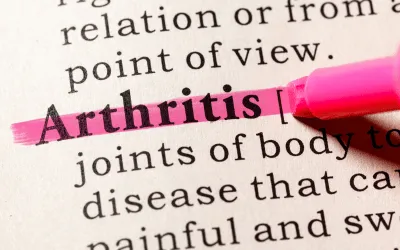About Arthritis
As the nation’s #1 cause of disability, arthritis affects nearly 60 million adults and 300,000 children. Over 100 types of arthritis and related conditions damage the joints and often other organs.
How can we assist you?
Helpful Tools for You

New EULAR Guidance: Treating Arthritis After Cancer Remission
For people with inflammatory arthritis who have also overcome cancer, managing arthritis can be a delicate balancing act. Many cancer survivors with conditions like rheumatoid or psoriatic arthritis worry that taking strong immune-suppressing medications might make their cancer come back. On the other hand, not life. Recognizing this challenge, the European Alliance of Associations for Rheumatology (EULAR) has released new recommendations to guide safe and effective arthritis treatment for patients in cancer remission. These recommendations – published in late 2024 – aim to dispel outdated fears and ensure patients get the arthritis care they need without unnecessary delay.
Understanding the New EULAR Recommendations
EULAR convened a task force of experts to review the latest evidence on arthritis medications in patients with a history of cancer. The result is a set of guiding principles and specific “points to consider” for treating inflammatory arthritis (like rheumatoid arthritis, psoriatic arthritis, and others) in people who have had cancer. Below are some key takeaways from these updated recommendations, explained in plain language:
Start Treatment Without Delay: If a patient’s cancer is in remission, targeted therapies for arthritis should not be put on hold – they can be started “without delay”. In the past, doctors often waited months or even years after cancer treatment before using biologics or other potent drugs for arthritis. Now, EULAR experts say that prompt treatment of active arthritis is important, even if the cancer was recent, because uncontrolled inflammation is harmful and may even raise health risks on its own. In fact, effectively treating the arthritis may help reduce overall malignancy risk in these patients
Individualized Decisions: Treatment decisions must be personalized. Every patient’s situation is different, so doctors should assess each person’s risk of cancer recurrence individually – taking into account the type of cancer they had, how long they’ve been in remission, their risk factors for cancer returning, as well as other health issues and lifestyle factors. There is no one-size-fits-all rule; instead, the arthritis treatment plan should be tailored to balance the benefits and risks for that particular patient This also means the patient’s preferences and concerns should be part of the decision-making process (shared decision-making between the patient and doctor is explicitly emphasized by EULAR)
Preferred Medications for Certain Cancer Histories: The guidelines highlight that some arthritis medications may be better choices than others depending on a patient’s cancer history. For example, in patients who previously had a solid tumor cancer (such as breast, prostate, or colon cancer), TNF inhibitor biologics (medicines like etanercept or adalimumab) are often preferred as the first-line targeted therapy. These drugs target inflammatory cytokines and have not shown an excess of cancer recurrences in studies of solid tumor survivors. Meanwhile, for patients with a history of lymphoma (a blood cancer), a B-cell depleting therapy (such as rituximab) may be the preferred option if a biologic is needed. This preference is based on emerging evidence – since rituximab eliminates B cells (the type of cell that can give rise to lymphoma), it is thought to be a safer choice in those who had B-cell cancers.
Use Caution with Certain Drugs: Some targeted arthritis treatments should be used only with caution in cancer survivors. Notably, JAK inhibitors (a type of oral small-molecule drug) and abatacept (a T-cell targeting biologic) are not the first choices if other options are available. EULAR recommends using these particular drugs only when no alternatives exist, because there have been signals from research that they might be associated with higher rates of cancer or cancer recurrence in certain situations. (For instance, abatacept was linked to slightly increased cancer incidence in some studies of rheumatoid arthritis patients without prior cancer, and JAK inhibitors carry an FDA warning about malignancy risk in general.) The bottom line is that doctors will likely opt for other therapies first and only consider JAK inhibitors or abatacept if absolutely necessary for disease control
Active Cancer Requires Careful Coordination: If a patient’s cancer is not in remission (meaning they are still undergoing cancer treatment or the cancer is active) and they also have active inflammatory arthritis, the situation is more complex. In these cases, EULAR advises that starting or adjusting arthritis treatment should be a collaborative decision made jointly by the patient, their rheumatologist, and their oncologist. The timing and choice of therapy might need to be synchronized with cancer care. For example, the team might decide to control the arthritis with simpler treatments temporarily while cancer therapy is ongoing, and introduce a targeted therapy a bit later. This point underscores that active cancer is a special scenario – arthritis therapy is not off the table, but it has to be decided on a case-by-case basis with input from cancer specialists
Coordinate Care with a Multidisciplinary Team: Underpinning all these recommendations is the message that collaboration among healthcare providers is essential. Rheumatologists are encouraged to co-manage patients who have had cancer together with oncologists and other relevant specialists. In practice, this means your arthritis doctor might regularly consult your cancer doctor (and vice versa) to share information and plan the best course of action. Primary care providers should also be kept in the loop, as they know the patient’s overall health and can help monitor any issues. EULAR’s guidance stresses that the best outcomes occur when doctors work as a team and involve the patient in every major decision
Multidisciplinary collaboration is key. Rheumatologists, oncologists, primary care physicians, and other specialists should work together – and with the patient – to craft a safe and effective treatment plan for arthritis after cancer.
Why These New Guidelines Matter
These updated recommendations are more than just technical guidance for doctors – they carry real significance for patients and families dealing with both arthritis and cancer. Historically, many physicians were very cautious about using biologics or other immunosuppressive drugs in someone who had a prior cancer. Often, this led to delaying arthritis treatment for years out of fear that suppressing the immune system might allow any lingering cancer cells to thrive. While caution is understandable, we now know that undertreating arthritis can be harmful too. Severe inflammatory arthritis can cause irreversible joint damage, disability, and a host of other problems if not adequately controlled. The chronic inflammation and stress of uncontrolled disease may even negatively affect overall health or potentially contribute to other illnesses.
The EULAR task force found that, based on the latest research, most modern arthritis therapies do not significantly increase the risk of a past cancer returning, especially if the cancer has been in remission. By saying treatment can start without delay, the experts are effectively reassuring patients and doctors that it’s usually safe and necessary to treat the arthritis aggressively once the cancer is under control. This is a big shift in mindset from “let’s wait and see” to “let’s care for all of the patient’s health needs now.” As Dr. Robin Dore (a rheumatologist commenting on the new guidelines) noted, this issue is very important to patients who have survived cancer – they worry that treating their arthritis could make the cancer recur, but they also suffer if their arthritis is left untreated. The new guidance should help alleviate that worry by providing evidence-based advice on how to treat safely.
For patients and their families, these recommendations are empowering. They mean that being a cancer survivor does not automatically sentence someone to live with uncontrolled arthritis pain. Doctors now have a roadmap for how to manage arthritis in the context of a past cancer, so they don’t have to rely only on guesswork or extreme caution. The guidance also pushes for a team approach – which can give families extra peace of mind, knowing that their loved one’s oncologist and rheumatologist will be in communication and working jointly on the care plan. When everyone is on the same page, there’s less chance of important details slipping through the cracks, and the patient doesn’t feel caught between two different medical specialists.
Moreover, these recommendations aim to prevent undertreatment due to outdated fears. In the words of the EULAR publication, rheumatologists should always weigh the risk of the cancer coming back against the risk of leaving the inflammatory arthritis undertreated. In many cases, the scale will tip in favor of treating the arthritis because the patient’s immediate quality of life and long-term joint health depend on it. EULAR’s guidance encourages clinicians to make well-rounded decisions – acknowledging the cancer history but also the urgent need to control arthritis – rather than automatically doing too little for the arthritis. This balanced approach benefits patients by addressing all of their health needs, not just one aspect.
A Conversation to Have with Your Healthcare Team
If you or a family member has inflammatory arthritis and a history of cancer, you might be reading this and wondering what it means for your own treatment plan. The most important thing to do is open a conversation with your healthcare team. Bring up these new EULAR recommendations at your next appointment – chances are your rheumatologist is already aware of them, but it can be helpful to discuss how they apply in your case. For example, you might ask: “Given my cancer history, are we choosing the best arthritis medication for me, or should we consider a different option based on the latest guidelines?” This kind of question can prompt a productive discussion about whether any changes are needed to optimize your care.
Remember that any treatment decisions should be made collaboratively. You should never stop or start a medication on your own. Instead, talk with your rheumatologist (and oncologist, if you’re still in follow-up for cancer) about the pros and cons of your current therapy in light of this guidance. The new recommendations are not a one-size-fits-all mandate, but they provide a framework to help tailor the treatment to you. Your doctors will consider factors like what type of cancer you had, how aggressive your arthritis is, what medications you’ve tried before, and your overall health and preferences. Together – as a team that includes you as the patient – you can arrive at a plan that keeps your arthritis under control while staying vigilant about your past cancer
It’s also a good idea to ensure that all your providers are in communication. You might politely remind your rheumatologist and oncologist to exchange notes or even speak directly about your case if they haven’t recently. According to EULAR, such multidisciplinary collaboration is key to implementing these recommendations effectively. Don’t hesitate to advocate for yourself by asking for that collaboration – for instance, you can ask, “Should my oncologist weigh in on this treatment choice?” This doesn’t mean your doctors aren’t already doing so, but it shows that you value a team approach, and most providers will appreciate that.
Looking Ahead
The introduction of these EULAR recommendations is a positive development for patients with arthritis and a history of cancer. It highlights that effective arthritis treatment and cancer remission can co-exist. By debunking some of the old fears, the guidance helps ensure that patients aren’t left suffering from untreated arthritis unnecessarily. Moving forward, researchers will continue to study arthritis medications in cancer survivors – EULAR has noted the need for more data, especially for patients with certain cancers like melanoma and those on newer drug classes This means the advice may be refined even further in the future. But for now, patients and clinicians finally have some clear direction grounded in the best available evidence.
In summary, if you’re navigating life after cancer and dealing with arthritis, know that you have options and support. The latest expert guidance says you deserve prompt and effective arthritis care, with a treatment strategy tailored to your unique situation and coordinated between your doctors. Many patients and families find this news reassuring – it means the medical community is actively working to address both your cancer and your arthritis, so you can focus on living your life to the fullest. As always, talk with your healthcare team about any concerns or potential changes to your treatment. With open communication and a personalized plan, you can confidently manage your arthritis without compromising your past cancer success.
Effects of Arthritis

Cause of Disability
In the United States, 23% of all adults, or more than 54 million people, have arthritis. It is a leading cause of work disability, with annual costs for medical care and lost earnings of $303.5 billion.

Workforce Effects
Sixty percent of US adults with arthritis are of working age (18 to 64 years). Arthritis can limit the type of work they are able to do or keep them from working at all.

Global Impact
In fact, 8 million working-age adults report that their ability to work is limited because of their arthritis. For example, they may have a hard time climbing stairs or walking from a parking deck to their workplace.
Promoting Interventions That Reduce Arthritis Pain
American Arthritis Foundation recognizes several proven approaches to reduce arthritis symptoms:
Be active. Physical activity—such as walking, bicycling, and swimming—decreases arthritis pain and improves function, mood, and quality of life. Adults with arthritis should move more and sit less throughout the day. Getting at least 150 minutes of moderate-intensity physical activity each week is recommended.
Protect your joints. People can help prevent osteoarthritis by avoiding activities that are more likely to cause joint injuries.
Talk with a doctor. Recommendations from health care providers can motivate people to be physically active and join a self-management education program. Should your arthritis be interfering with your activities of daily living you may be a candidate to receive many new treatments, and learn how to reverse the arthritis condition.


